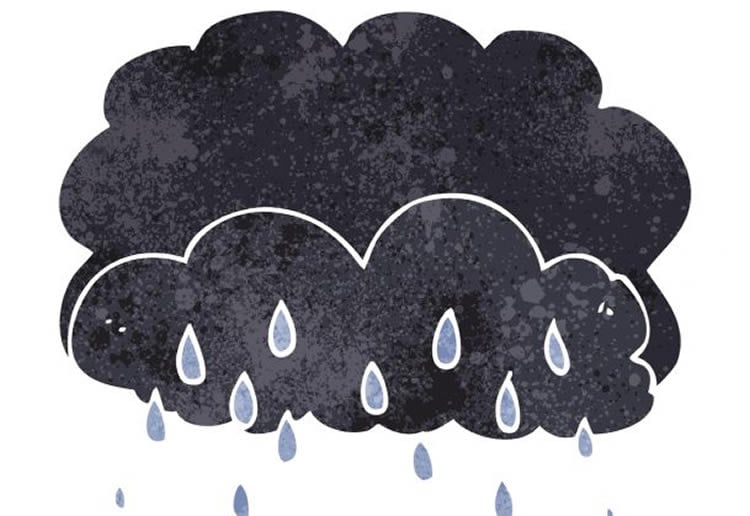Summary: Lingering negative emotional responses to stress can have implications for physical health later in life, a new study reveals.
Source: APS.
People whose negative emotional responses to stress carry over to the following day are more likely to report health problems and physical limitations later in life compared with peers who are able to “let it go,” according to findings published in Psychological Science.
“Our research shows that negative emotions that linger after even minor, daily stressors have important implications for our long-term physical health,” says psychological scientist Kate Leger of the University of California, Irvine.
“When most people think of the types of stressors that impact health, they think of the big things, major life events that severely impact their lives, such as the death of a loved one or getting divorced,” Leger says. “But accumulating findings suggest that it’s not just the big events, but minor, everyday stressors that can impact our health as well.”
Evidence from previous studies suggests a clear association between same-day responses to stress and long-term well-being, but the impact of lingering emotional responses remained unclear. That is, does it make a difference if a stressor – such as a flat tire, a bad grade, or an argument — leads to negative emotions that spill over into the following day?
To find out, Leger and colleagues Susan T. Charles and David M. Almeida analyzed data from the Midlife in the United States Survey, a nationally representative, longitudinal study of adults.
As part of the study, participants completed an 8-day survey of negative emotion; each day, they reported how much of the time over the previous 24 hours they had felt a variety of emotions (e.g., lonely, afraid, irritable, and angry). They also reported the stressors that they experienced each day.
In a subsequent part of the study that took place 10 years later, the participants completed surveys that assessed their chronic illnesses and functional limitations. Participants reported the degree to which they were able to carry out basic and everyday tasks, such as dressing themselves, climbing a flight of stairs, carrying groceries, and walking several blocks.
As expected, people tended to report higher negative emotion if they had experienced a stressor the previous day compared with if they hadn’t experienced any stressor the day before.
Critically, analyses revealed that lingering negative emotions in response to a stressor were associated with a greater number of health problems, including chronic illnesses, functional impairments, and difficulties with everyday tasks, a decade later.
These associations emerged independently of participants’ gender, education, and baseline health and they held even after the researchers took participants’ same-day emotional responses and average number of stressors into account.
“This means that health outcomes don’t just reflect how people react to daily stressors, or the number of stressors they are exposed to – there is something unique about how negative they feel the next day that has important consequences for physical health,” explains Leger.

Leger and colleagues hypothesize that this link could play out through activation of stress-related systems or through health behaviors, two potential mechanisms that offer avenues for future research.
“Stress is common in our everyday lives. It happens at work, it happens at school, it happens at home and in our relationships,” says Leger. “Our research shows that the strategy to ‘just let it go’ could be beneficial to our long term physical health.”
Funding: This work was supported by National Institute of Aging and National Institutes of Health grants awarded to S. T. Charles (R01AG042431) and to D. M. Almeida (R01AG019239).
Source: Kate Leger – APS
Publisher: Organized by NeuroscienceNews.com.
Image Source: NeuroscienceNews.com image is adapted from the APS news release.
Original Research: Abstract for “Let It Go: Lingering Negative Affect in Response to Daily Stressors Is Associated With Physical Health Years Later” by Kate A. Leger, Susan T. Charles, and David M. Almeida in Psychological Science. Published March 19 2018.
doi:10.1177/0956797618763097
[cbtabs][cbtab title=”MLA”]APS “Lingering Negative Responses to Stress Linked with Health a Decade Later.” NeuroscienceNews. NeuroscienceNews, 14 April 2018.
<https://neurosciencenews.com/stress-health-8790/>.[/cbtab][cbtab title=”APA”]APS (2018, April 14). Lingering Negative Responses to Stress Linked with Health a Decade Later. NeuroscienceNews. Retrieved April 14, 2018 from https://neurosciencenews.com/stress-health-8790/[/cbtab][cbtab title=”Chicago”]APS “Lingering Negative Responses to Stress Linked with Health a Decade Later.” https://neurosciencenews.com/stress-health-8790/ (accessed April 14, 2018).[/cbtab][/cbtabs]
Abstract
Let It Go: Lingering Negative Affect in Response to Daily Stressors Is Associated With Physical Health Years Later
The way we respond to life’s daily stressors has strong implications for our physical health. Researchers have documented the detrimental effects of initial emotional reactivity to daily stressors on future physical health outcomes but have yet to examine the effects of emotions that linger after a stressor occurs. The current study investigated how negative affect that lingers the day after a minor stressor occurs is associated with health-related outcomes. Participants (N = 1,155) in a community-based, nationwide study answered questions about daily stressors and affect across 8 consecutive days and about their physical health almost 10 years later. Multilevel models indicated that people experience heightened levels of negative affect the day after a stressor occurs. Furthermore, higher levels of lingering negative affect are associated with greater numbers of chronic conditions and worse functional limitations 10 years later. Findings suggest that affective recovery from daily stressors has unique importance for long-term physical health.






